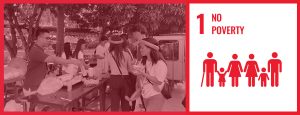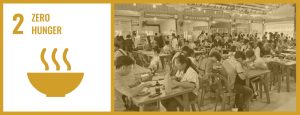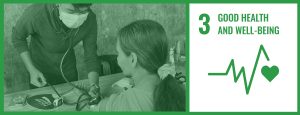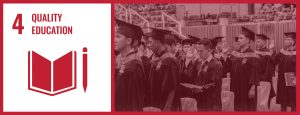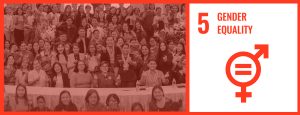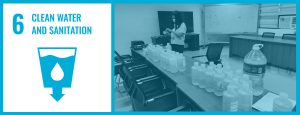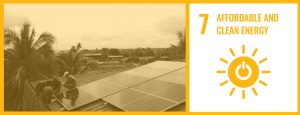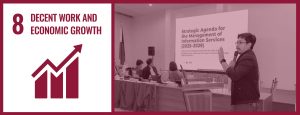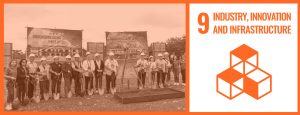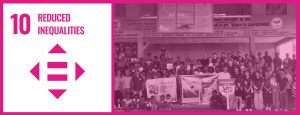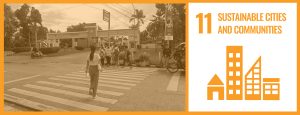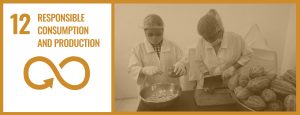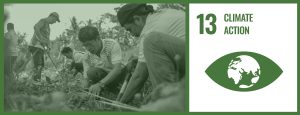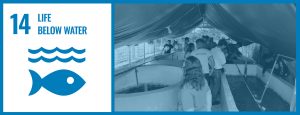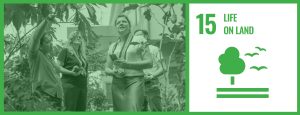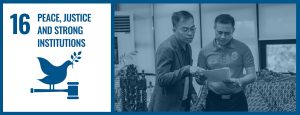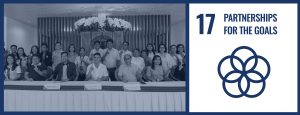2024 Reports | SDG 12 – Responsible Consumption and Production

OPERATIONAL MEASURES
Sustainable and healthy food choices through local produce
The Isabela State University (ISU) Cauayan Campus is an example of how sustainability and wellness can go hand in hand. By prioritizing fresh, locally grown vegetables and providing affordable, nutritious meals, the canteen embodies ISU’s commitment to promoting healthy lifestyles and environmental responsibility within the university community. This initiative aligns with the University’s mission to ensure equitable access to sustainable and healthy food choices for all students and staff. Through the integration of plant-based meals like chopsuey and pinakbet, the canteen ensures that vegetarian-friendly options are not only available but also accessible to everyone, regardless of budget.
ISU ENVIRONMENTAL MANAGEMENT CODE (EMC)
Policy waste disposal – Hazardous materials
The Isabela State University Environmental Management Code (ISU-EMC) of 2018 serves as a comprehensive framework guiding the university’s commitment to environmental protection and sustainable practices. Under Section V, Part C: Environmental Protection (page 10 of 20), the Code mandates the minimization of synthetic pesticides, fertilizers, and commercial feeds, used within the campus to reduce ecological impact and promote safer, greener operations. Furthermore, Section VI: General Guidelines (pages 11–12 of 20) requires all university units to implement solid waste reduction and segregation at the source. This includes facilities such as offices, conference rooms, canteens, dormitories, guesthouses, and student parks. Waste materials are categorized into compostable or biodegradable waste, paper waste, recyclable and reusable materials, and special waste. Each waste receptacle must be properly labeled, color-coded, covered, and secured to ensure effective waste management. The Code also emphasizes minimizing the use of hazardous chemicals in experimental and production areas to uphold safety standards and strengthen environmental stewardship within the university community.
Isabela State University (ISU) Echague promotes organic agriculture practices to minimize the use of hazardous chemicals and materials. Its College of Agriculture faculty and students actively conduct research on organic farming techniques, exploring sustainable methods that ensure safe, nutritious, and environmentally friendly food production. Through these initiatives, ISU Echague not only enhances agricultural knowledge and skills but also fosters a culture of responsible farming, benefiting both the community and the environment.
Policy waste disposal – Landfill policy
The Isabela State University Environmental Management Code (ISU-EMC) of 2018 reinforces the university’s strong commitment to effective waste management and environmental sustainability. As stated under Section VI: General Guidelines (page 12 of 20), the Code provides clear procedures for handling campus waste. All biodegradable wastes generated within the university are to be collected and directly transported to the designated bio-organic or vermiculture project area, where they are utilized as inputs for ongoing composting activities. This practice contributes to organic fertilizer production, soil enrichment, and the reduction of waste requiring external disposal. Conversely, non-biodegradable wastes must be properly segregated and turned over to the Municipal Landfill in coordination with the Municipal Environmental Board. Through these measures, ISU ensures compliance with local environmental policies while minimizing its ecological footprint and promoting a culture of sustainability across the institution.
The Center for Organic Agriculture Research, Extension, and Training (COARET) of the College of Agriculture, Isabela State University – Echague Campus was established to advance research and production of organic fertilizers through the efficient utilization of agricultural wastes. Such wastes, often discarded, burned, or left to decompose in open fields, pose significant environmental hazards and risks to human health. By converting these wastes into valuable resources like organic compost or fertilizers, COARET promotes a sustainable approach to waste management that mitigates environmental degradation. Continuous use of organic fertilizers in vegetable production not only lowers input costs but also restores soil fertility and health, ensuring sustained agricultural productivity. The Center’s work includes identifying optimal substrate combinations, evaluating their effectiveness as plant nutrient sources, and assessing their impact on soil properties. Through research, production, and practical application, COARET transforms agricultural wastes into beneficial by-products, reducing pollution, enhancing soil quality, and increasing crop productivity, thereby reinforcing ISU’s commitment to sustainable agriculture and environmental stewardship.
Policy for minimization of plastic use
The Isabela State University Environmental Management Code (ISU-EMC) of 2018 underscores the university’s strong commitment to waste reduction and sustainable resource management. As outlined under Section V: Components of the Program, Part B – Waste Management/Collection and Disposal (page 10 of 20), the University strictly prohibits the use of plastic and Styrofoam materials in school canteens and offices, except when these are part of industrial packaging. This provision reflects ISU’s proactive stance in minimizing non-biodegradable waste. Complementing this, Section VI: General Guidelines (page 11 of 20, item 2) further enforces the ban by discouraging the use of disposable or “throw-away” materials such as plastic straws, Styrofoam containers, and other single-use items within university premises. Through these policies, ISU advances its environmental protection goals, fosters sustainable consumption practices, and reinforces its dedication to responsible campus operations and ecological stewardship.
Policy for minimization of disposable items
The Isabela State University Environmental Management Code (ISU-EMC) of 2018 clearly demonstrates the university’s dedication to sustainability and environmental responsibility. Under Section VI: General Guidelines (page 11 of 20), Item 2 specifically prohibits the use of disposable or single-use materials, such as plastic straws, Styrofoam containers, and other similar items, within all university premises. This directive aims to significantly reduce plastic waste generation and encourage the adoption of environmentally sustainable alternatives. Through this policy, ISU upholds its commitment to environmental protection, responsible resource management, and the promotion of a culture of sustainability across all campuses and operations.
Disposable policy: extensions to services
The Isabela State University Environmental Management Code (ISU-EMC) extends its scope beyond internal operations to include outsourced services and supply chain partners that operate within the university or provide goods and services to its units. This policy ensures that consistent environmental standards are maintained across all activities connected to the University, emphasizing waste reduction, proper waste disposal, and the adoption of sustainable practices. In alignment with this directive, canteens, janitorial services, and other service contractors are required to comply with the University’s prohibition on disposable plastics, Styrofoam, and other single-use items. Similarly, suppliers are encouraged—and in many cases required—to utilize eco-friendly packaging or provide recyclable and biodegradable alternatives. Contractual agreements typically include clauses mandating adherence to the EMC, thereby reinforcing ISU’s environmental objectives and promoting sustainability throughout its extended campus operations and partnerships.
Minimization policies extended to suppliers
The Isabela State University Environmental Management Code (ISU-EMC) extends its environmental policies to outsourced suppliers and the broader supply chain, encompassing providers of equipment, stationery, and construction or building services whose operations impact the campus. This policy ensures that all external partners adhere to the University’s environmental standards and sustainability goals. Suppliers are expected to minimize packaging waste, utilize eco-friendly materials, and ensure that all goods and services support the University’s commitment to responsible consumption and production. Contracts and procurement agreements typically contain clauses requiring full compliance with the EMC, thereby reinforcing consistent environmental stewardship. Through this approach, ISU broadens its environmental accountability beyond internal operations, fostering sustainable practices across its entire network of vendors, contractors, and service providers.
PUBLICATION OF SUSTAINABILITY REPORT
The Architecture Department of Isabela State University (ISU)–Ilagan Campus, in collaboration with the United Architects of the Philippines–Student Auxiliary (UAPSA), spearheaded a Clean and Green Program aimed at strengthening campus sustainability and environmental awareness. Simultaneously, the GREENYOUTH Movement at ISU–Angadanan, through its dedicated officers and in partnership with BS Education students, organized a campus-wide cleanup drive. The activity involved the systematic collection and segregation of waste across all campus areas, emphasizing proper recycling and responsible waste management. These initiatives embody ISU’s strong commitment to sustainability, fostering environmental stewardship, and promoting active participation among students and faculty in building a cleaner, greener, and more sustainable university community.
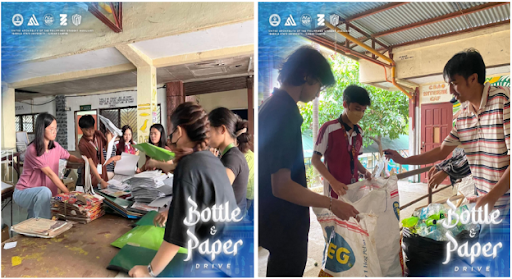
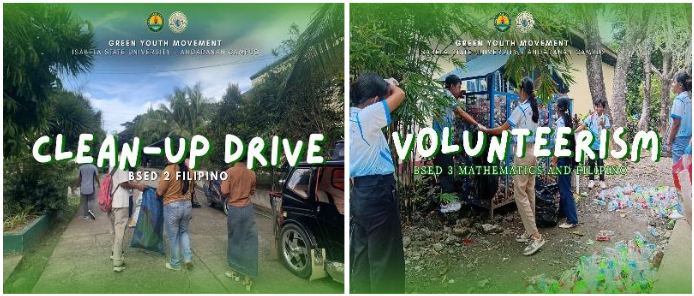
The ISU Cacao Research Center has published a study titled “Development and Sensory Evaluation of High Fiber Bread Incorporated with Cacao (Theobroma cacao L.) Pod Husk Flour.” This research highlights that cacao pod husks, which are typically discarded as waste in the Philippines, can be repurposed as a valuable ingredient in food products. By incorporating cacao pod husk flour into high-fiber bread, the study demonstrates a sustainable approach to reducing agricultural waste while enhancing the nutritional content of baked goods. This innovation not only promotes environmental responsibility but also adds economic value to cacao by-products, supporting both sustainable food production and local industry development.


